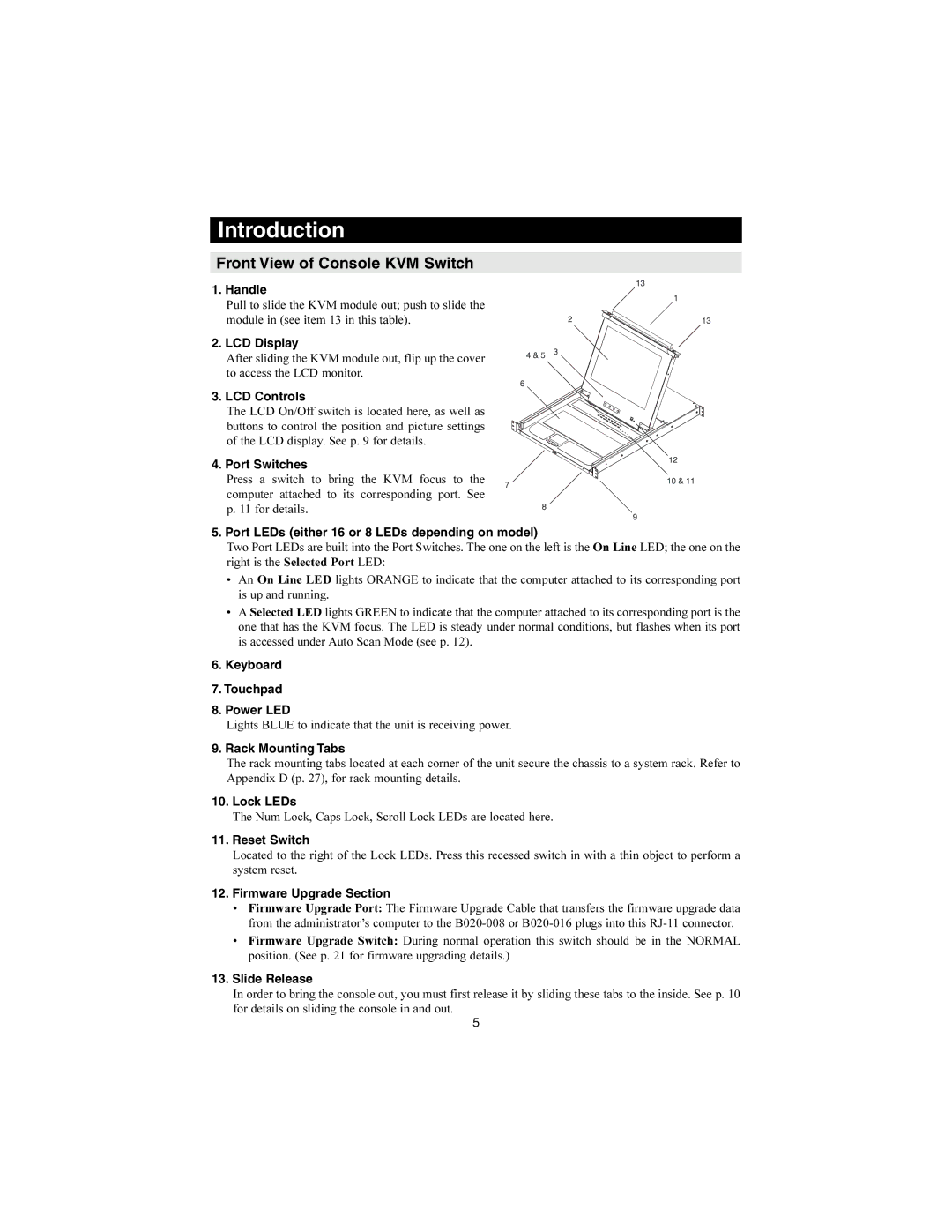
Introduction
Front View of Console KVM Switch
1.Handle
Pull to slide the KVM module out; push to slide the module in (see item 13 in this table).
2.LCD Display
After sliding the KVM module out, flip up the cover to access the LCD monitor.
3.LCD Controls
The LCD On/Off switch is located here, as well as buttons to control the position and picture settings of the LCD display. See p. 9 for details.
4.Port Switches
Press a switch to computer attached p. 11 for details.
bring the KVM focus to the to its corresponding port. See
5.Port LEDs (either 16 or 8 LEDs depending on model)
Two Port LEDs are built into the Port Switches. The one on the left is the On Line LED; the one on the right is the Selected Port LED:
•An On Line LED lights ORANGE to indicate that the computer attached to its corresponding port is up and running.
•A Selected LED lights GREEN to indicate that the computer attached to its corresponding port is the one that has the KVM focus. The LED is steady under normal conditions, but flashes when its port is accessed under Auto Scan Mode (see p. 12).
6.Keyboard
7.Touchpad
8.Power LED
Lights BLUE to indicate that the unit is receiving power.
9.Rack Mounting Tabs
The rack mounting tabs located at each corner of the unit secure the chassis to a system rack. Refer to Appendix D (p. 27), for rack mounting details.
10.Lock LEDs
The Num Lock, Caps Lock, Scroll Lock LEDs are located here.
11.Reset Switch
Located to the right of the Lock LEDs. Press this recessed switch in with a thin object to perform a system reset.
12.Firmware Upgrade Section
•Firmware Upgrade Port: The Firmware Upgrade Cable that transfers the firmware upgrade data from the administrator’s computer to the
•Firmware Upgrade Switch: During normal operation this switch should be in the NORMAL position. (See p. 21 for firmware upgrading details.)
13.Slide Release
In order to bring the console out, you must first release it by sliding these tabs to the inside. See p. 10 for details on sliding the console in and out.
5
